Dear Readers,
To sort of piggyback off of yesterday’s post, today I shall endeavor to discuss my favorite works of Civil War fiction. Keep in mind, that all I am saying is that these are my favorites. I am not saying that they are the best. Whether or not a person likes a book or not is a personal thing. I’ve read bestsellers that I did not like and I’ve read obscure books with only a few hundred copies published that I think are, or should be, classics. My personal collection of books is well over 2,000 volumes and around 500 of them are Civil War specific, so I’ve read every standard work and a whole lot of non-standard works, fiction and non, on the subject. I shall endeavor to tell you a little bit about why I like each of the books described below and where I was in life when I read them, as that may have something to do with why I enjoy them so much.
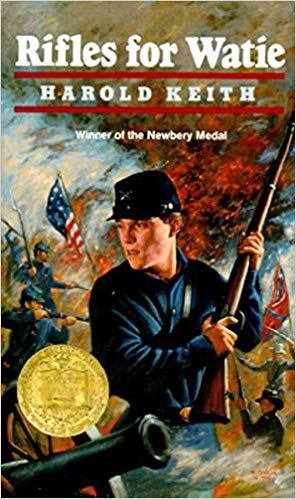
Rifles for Watie by Harold Keith was the first Civil War novel I read. The winner of the 1958 Newbery Medal was published the previous year. As I remember, I read the book when I was in third grade which would put it around 1985. This is a young adult novel and the protagonist is sixteen years old. What I enjoyed about this book is that you got to meet a large cross section of people; from Union soldiers to Cherokee Confederates, to civilians caught in the middle. Since the novel involves action in and around the Indian Territory, it covers something left out of the vast body of Civil War literature which tends to focus on things further east. I can longer recall what brought me to read Rifles for Watie. I have a vague memory of doing a book report on it, but I don’t know why I selected it. If I had to guess, it was probably a combination of the cover and the fact that it was about the Civil War.
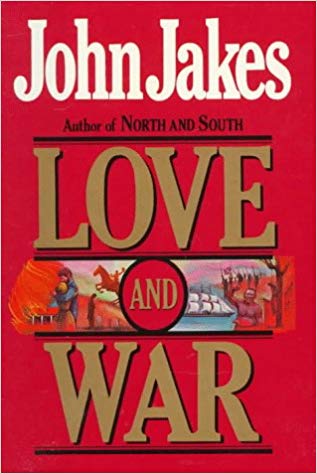
Love and War by John Jakes. This is book two of his North and South trilogy and this is the volume that covers the actual war itself. (North and South covers the Mexican War through the Secession Crisis while Heaven and Hell covers Reconstruction.) Though to be honest, you should really read all three in order. Jakes paints on a vast canvas. Too vast, I think, for me to truly capture the essence of it. The novels provide an in depth look at the events of the day through the eyes of two families, the Hazards and the Mains. There are a few differences between the mini-series (which was good in an 80s miniseries sort of way) and the novels. But honestly, they are so significant as to detract from the story. My introduction to these books came from television. I remember when the first miniseries aired in 85 and the second in 86. My grandfather recorded them on the VCR, and I watched them quite a few times. I did not read the books until I was in high school in the early 90s. I found them at a library book sale for a quarter apiece. It was pocket change well spent. As I mentioned yesterday, this book taught me that when writing about the Civil War, try to go for the lesser told tale rather than rehashing the same things that have been written about a million times. I also learned that well written historical fiction can be as educational as it is entertaining. Finally, Jakes taught me how to write complex characters that accurately reflect the temperament and mindset of the era in which your books is set. Jakes wrote quite a few other books. I have copies of all of his historical novels and I cannot recommend them enough. He is my biggest inspiration as a writer of historical fiction.
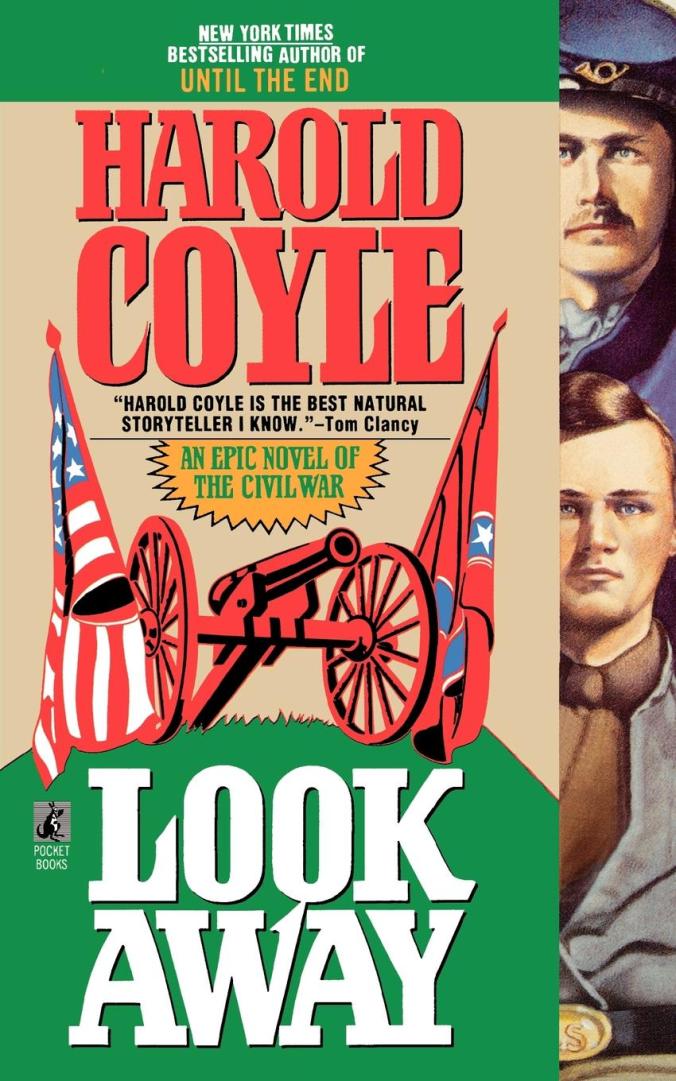
Look Away & Until the End by Harold Coyle tell the story of two brothers separated by war and forced onto opposite sides by circumstances largely outside their control. Coyle was an Army officer and is best known for his World War Three novel Team Yankee. I read his Civil War novels when I was in high school and identified with the main characters, largely because they were of similar age to me. One common theme you might see here is that I read a lot of books in high school. I rarely read things that were assigned for a class, preferring to find my own books instead. My teachers, thankfully, largely tolerated this since I read a whole lot more than most of my classmates. Though these books do contain the usual Civil War clichés, the action sequences are well written and the characters are believable. The situation which separates the brothers and sets them down the path to end up opposing one another in the war is plausible as well. These are not dense, heavy reads. In fact, if you are a fast reader, you could probably finish one of them in a night. I would also suggest that if there is a young person in your family who likes to read, and who you would like to get interested in the Civil War, give them both of these books. They will no doubt find them interesting. Who knows, said young person might become the next great Civil War historian or novelist.
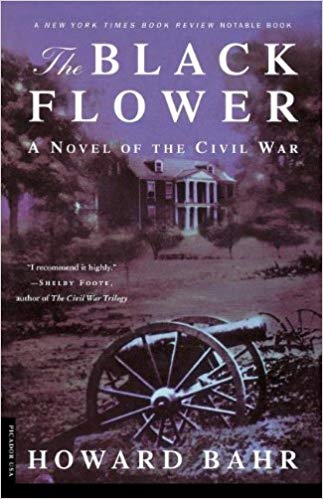
The Black Flower by Howard Bahr tells the tale of the Battle of Franklin and its aftermath. This was among the most horrendous engagements of the entire war, though it is largely forgotten outside of enthusiasts of the Western Theater. Bahr was an English professor, and this novel is, what I would classify, as a literary novel. It’s written in a way that I could never dream of doing myself. It won the WY Boyd Award for military fiction in 1998. The funny thing is that it came out around the same time as Cold Mountain. While Cold Mountain won the National Book Award and was eventually made into a movie, not to mention being mentioned on national television programs, The Black Flower got no major media coverage at all, despite being (in my opinion) a much better book. I will admit to a certain bias though. As I’ve written about before, I’ve had a reoccurring dream of the Battle of Franklin for most of my life and so I am pre-disposed to like ANY book written about the battle, fiction or non. Lastly, the one thing that I enjoyed the most about this book is that it manages to show both the horrific and the absurd, both present on Civil War battlefields. You can find the account of my recurring dream about the Battle of Franklin here.
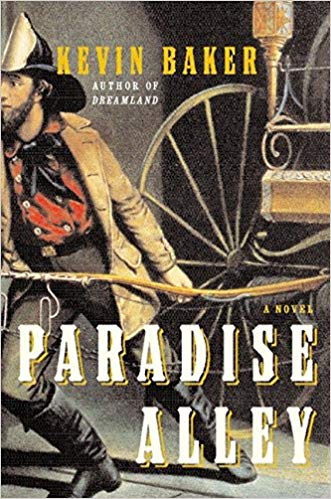
I saved the best for last. Paradise Alley (2002) by Kevin Baker is one of the finest Civil War novels ever written, though the events on the battlefield are somewhat removed from the story itself. Instead, it tells the story of the worst instance of urban unrest in American History. It has entered our lexicon as the “New York City Draft Riots” though, as I discuss here, it was really a full scale urban insurrection. To call it a mere riot does not do it justice. It seems as if the Draft Riots are known outside of Civil War circles merely because of the movie Gangs of New York. While the movie nails the setting and costumes of 1863 Manhattan, it falls flat on the history itself. Still, some knowledge is better than no knowledge. Back to the novel. Baker does an incredible job describing the environs of lower Manhattan in the summer of 1863, along with those who inhabit it. We see a cross section of people, so the reader is exposed to various viewpoints both political and social, all accurate for the time period. His descriptions of the Great Hunger in Ireland are among the best I’ve ever read in a novel. One of the ways this book inspired me is that the author goes for all of the senses. He describes how things look, feel, and smell. (Smell often gets left out of fictional descriptions.) For this reason, it my own writing, I try and make sure the nose is duly assaulted by the odors of the past. As an Irish-American, I feel that Baker does justice to both our triumphs and our tragedies. Though discriminated against themselves, the Irish in this country could be quite racist in the 19th Century, though no more so than society at large. Paradise Alley is a book I have recommended to people time and time again. I’ll continue to do so in the future. If you’d like to read a post I wrote about the Draft Riots, you can do so here.
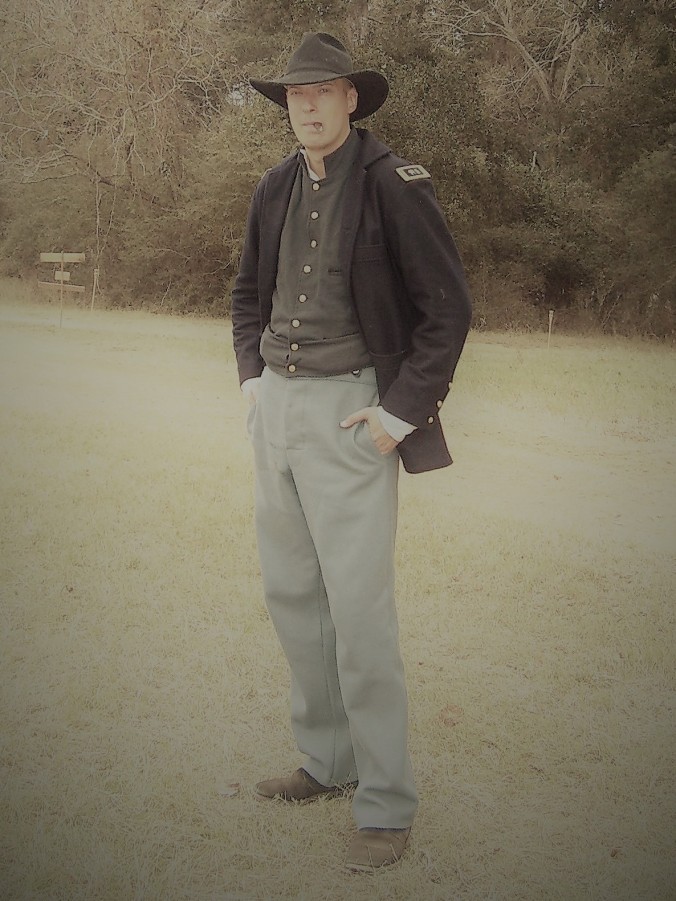
I am aware, Dear Readers, that I have left The Red Badge of Courage, The Killer Angels, and Gone With the Wind off the list. Yes, I have read them all. Yes, I own copies of them all. In fact, I have a first edition Gone With the Wind. These books are classics and I do not seek to diminish them in the slightest. They are simply not my favorite Civil War novels. As this list describes my favorites, those three do not make the cut. I’d be happy to hear what your favorites are, especially if they are lesser known titles. I’m always on the hunt for more things to read. In fact, I’m presently reading This Scorched Earth by William Gear. I’m enjoying it because one of the characters is a Civil War era doctor and during my time as a reenactor, I portrayed, among other things, a Civil War surgeon (both Army and Navy). His novel doesn’t shy away from the more brutal aspects of the war either. So add that one to your list if you enjoy Civil War fiction.
Happy Reading!
L.H.
White Doves of Morning; although not one of James Lee Burke’s best works. I rarely read Civil War fiction, but I do read other historical fiction, and agree with your premise that good historical fiction can teach history. Looking forward to reading your novel(s).
LikeLike
https://invertedlogicblog.wordpress.com/2019/05/09/political-opinions63-lincoln-wasnt-a-proponent-of-equality/
LikeLike